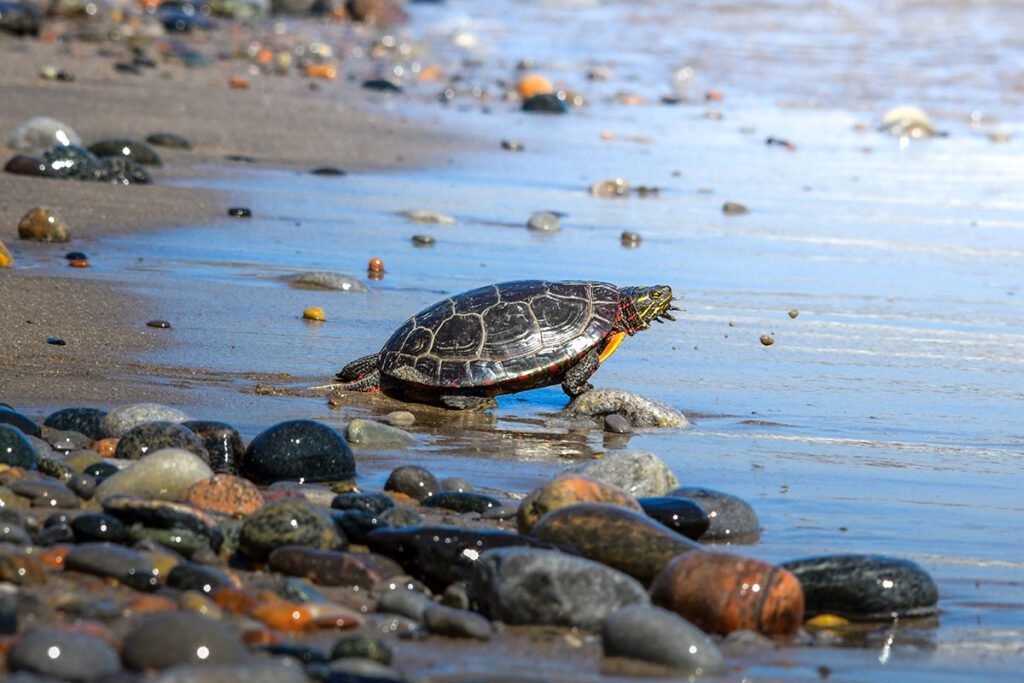Project Overview
Water-based recreation around lakes and rivers can involve direct and indirect interactions between humans and turtles. Many benefits arise from these social-ecological interactions including increased human wellness and promotion of stewardship. However, these recreational activities may also introduce risks to turtle populations through critical habitat disturbance, boat collision, bycatch, or other. Freshwater turtle populations are vulnerable to human impacts because of their life history traits, where even small disturbances can lead to major population declines. To protect these vulnerable species, we need to better understand the benefits and risks of interactions between people and turtles. For this project, we are particularly interested in interactions through water-based recreation (cottaging, boating, fishing, etc.). This work will support evidence-based best practices that may be applied to freshwater recreational activities for mitigating species disturbances. At the same time, our work will help raise awareness among water recreational users on what they can do to help mitigate risks to such vulnerable species.

Project Objectives
1. Synthesize knowledge on freshwater turtle- human interactions in water recreation.
2. Identify enablers, barriers, and future directions for turtle protection in water recreation through expert knowledge.
3. Assess levels of awareness and pro-environmental behaviours that water recreational users possess for risks to local turtle populations turtle.
4. Quantify turtle impacts during water recreation in the Rideau waterway.
5. Create an interdisciplinary risk assessment to model the cumulative risk for freshwater turtles during water-based recreation.
Project Team
Project Outputs
Coming Soon!
Project Funded By
Carleton University




